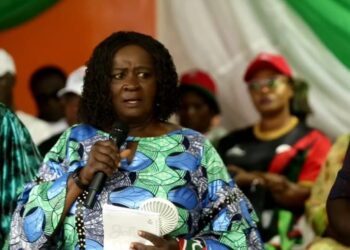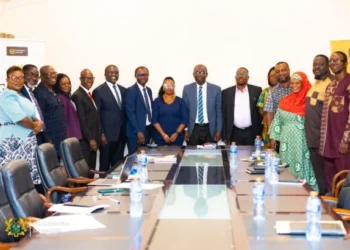The Ministry of Education has strongly refuted claims made by Professor Ababio, who alleged that the Free Senior High School (SHS) policy has compromised the quality of education in Ghana. In a statement released by the Ministry’s spokesperson, Kwasi Kwarteng, these assertions were labeled as unsubstantiated and politically motivated.
According to Kwarteng, Professor Ababio’s criticisms lack any factual evidence, data, or rigorous academic research to back his claims. He stated that the Free SHS policy, introduced under the current administration, has instead brought significant improvements in the educational sector. He emphasized that the critique appears to be an attempt to discredit the policy for political gain rather than an objective assessment of its impact.
IMPROVEMENTS IN WASSCE RESULTS
Kwarteng presented data comparing the educational outcomes between 2015, during the tenure of the National Democratic Congress (NDC), and 2023, under the New Patriotic Party (NPP). The results show marked improvements in student performance, particularly in core subjects in the West African Senior School Certificate Examination (WASSCE):
– *English Language*: Improved from 45.2% in 2015 to 73.11% in 2023.
– *Integrated Science*: Increased from 28.7% in 2015 to 66.82% in 2023.
– *Mathematics*: Rose from 32.4% in 2015 to 62.23% in 2023.
– *Social Studies*: Jumped from 57.4% in 2015 to 76.76% in 2023.
“These numbers reflect a significant rise in the quality of education provided under the Free SHS policy. Claims of declining quality are not only inaccurate but also misleading,” Kwarteng asserted.
INCREASED ENROLLMENT WITH MAINTAINED QUALITY
In addition to improved performance, the Ministry’s data shows a sharp increase in enrollment, with student numbers rising from 299,649 in 2015 to 504,729 in 2023. Despite the increased access, Kwarteng insists that the quality of education has not been compromised. He further noted that Ghana has achieved a Gender Parity Index (GPI) of 1 at the senior secondary level, meaning that boys and girls now have equal access to secondary education.
“The significant rise in student enrollment, coupled with improved results, clearly shows that expanding access to education has not affected quality. In fact, it’s the opposite—access has increased, and so has performance,” Kwarteng explained.
### School-Specific Success Stories
To further debunk the claims of declining quality, Kwarteng pointed to improvements in specific schools that were once underperforming. For example, he mentioned that Presbyterian SHS, Mampong, saw its pass rate rise from a mere 0.95% in 2015 to 57.68% in 2022. Similarly, Ahantaman Girls SHS improved from 0.2% in 2015 to 43.12% in 2022.
“These are clear examples that schools once struggling are now flourishing under the Free SHS policy. The data speaks for itself,” Kwarteng concluded.

































